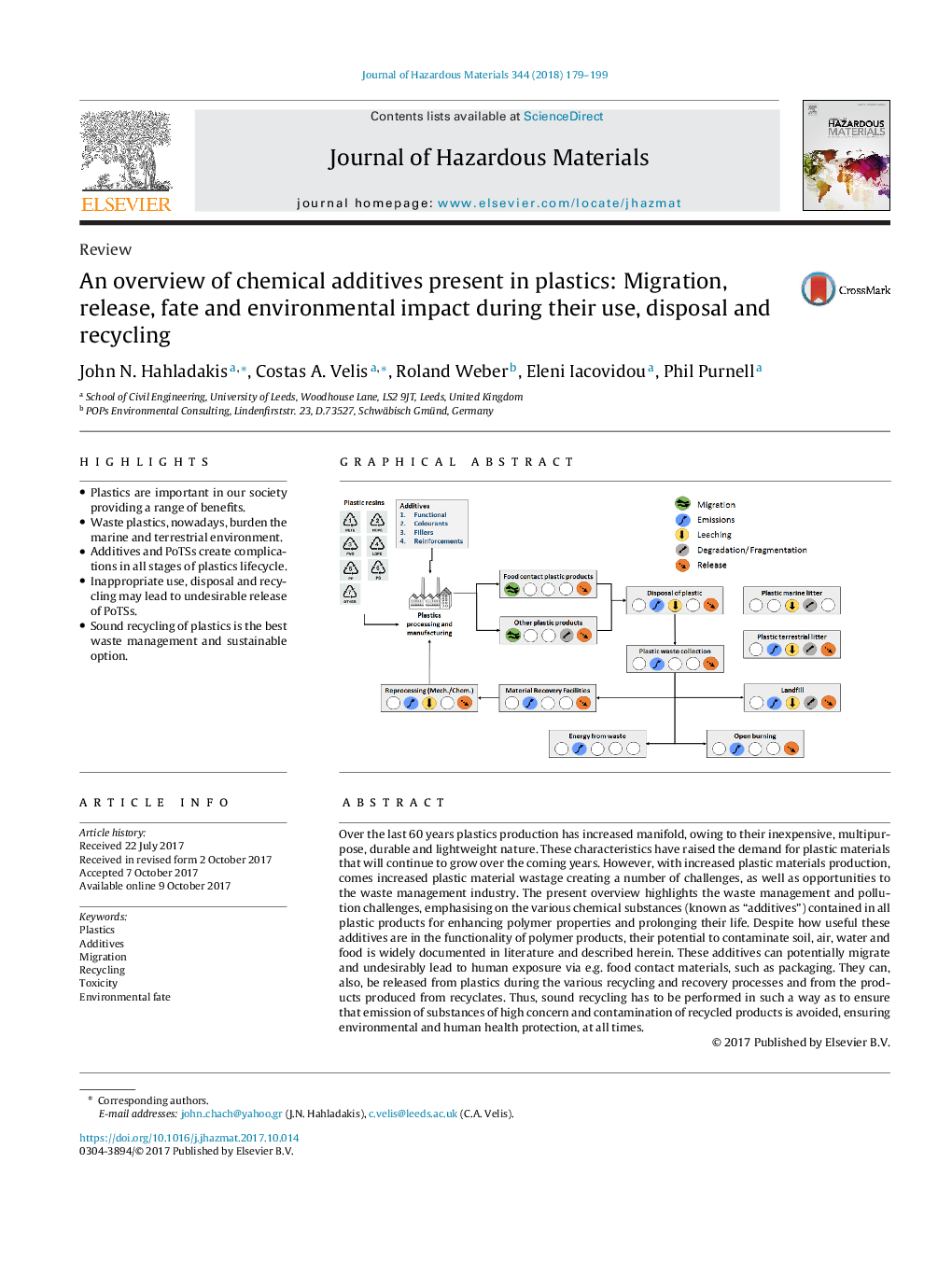| Article ID | Journal | Published Year | Pages | File Type |
|---|---|---|---|---|
| 4979042 | Journal of Hazardous Materials | 2018 | 21 Pages |
â¢Plastics are important in our society providing a range of benefits.â¢Waste plastics, nowadays, burden the marine and terrestrial environment.â¢Additives and PoTSs create complications in all stages of plastics lifecycle.â¢Inappropriate use, disposal and recycling may lead to undesirable release of PoTSs.â¢Sound recycling of plastics is the best waste management and sustainable option.
Over the last 60 years plastics production has increased manifold, owing to their inexpensive, multipurpose, durable and lightweight nature. These characteristics have raised the demand for plastic materials that will continue to grow over the coming years. However, with increased plastic materials production, comes increased plastic material wastage creating a number of challenges, as well as opportunities to the waste management industry. The present overview highlights the waste management and pollution challenges, emphasising on the various chemical substances (known as “additives”) contained in all plastic products for enhancing polymer properties and prolonging their life. Despite how useful these additives are in the functionality of polymer products, their potential to contaminate soil, air, water and food is widely documented in literature and described herein. These additives can potentially migrate and undesirably lead to human exposure via e.g. food contact materials, such as packaging. They can, also, be released from plastics during the various recycling and recovery processes and from the products produced from recyclates. Thus, sound recycling has to be performed in such a way as to ensure that emission of substances of high concern and contamination of recycled products is avoided, ensuring environmental and human health protection, at all times.
Graphical abstractDownload high-res image (125KB)Download full-size image
